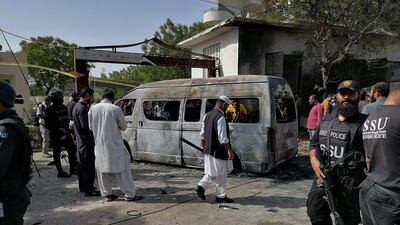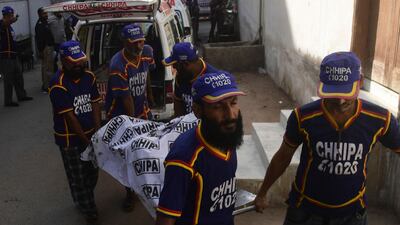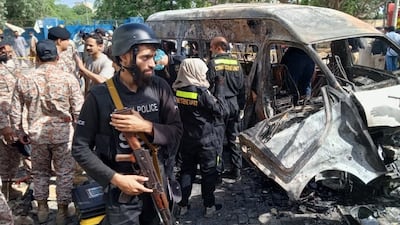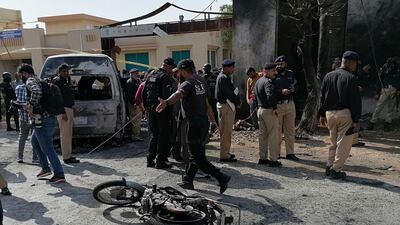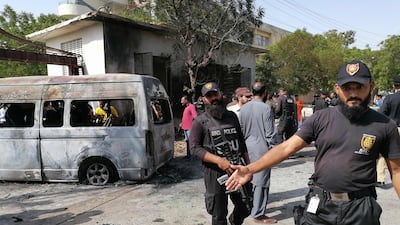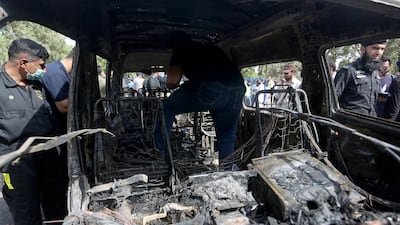At least three Chinese citizens and one other person were killed on Tuesday in a suicide bombing in Pakistan that was carried out by a woman on behalf of a local separatist movement.
The woman attacked a minibus carrying staff from the Confucius Institute affiliated with Karachi University.
The Baloch Liberation Army claimed responsibility, with the group’s spokesman Jeeyand Balouch saying it was a “self-sacrificing attack on Chinese in Karachi”.
The bombing was the group’s first by a female militant, he added.
The organisation is one of several fighting for independence for Pakistan's largest province.
Chinese people have regularly been attacked by separatists in Balochistan province, where Beijing is involved in huge infrastructure projects as part of its Belt and Road Initiative.
Karachi police confirmed four people had died in the attack, including three Chinese citizens and the minibus driver.
CCTV footage broadcast by local channels showed a woman standing near the gate of the institute, inside the Karachi University grounds, as the minibus pulls up.
When it gets to within a metre, she turns her back on it and detonates a bomb strapped to her body.
The Confucius Institute is a cultural and educational programme that China operates at universities around the world.
Pakistan's new Prime Minister Shehbaz Sharif immediately condemned the attack.
“I am deeply grieved on the loss of precious lives including of our Chinese friends in the heinous attack in Karachi today,” he tweeted.
Mr Sharif took over as prime minister earlier this month after Imran Khan was ousted by a no-confidence vote. Tackling a resurgence in militancy will be one of his biggest challenges.
“I strongly condemn this cowardly act of terrorism,” Mr Sharif said. He added that “the perpetrators will surely be brought to justice".
In February, Baloch separatists staged four days of attacks across two locations in the province, killing nine soldiers.
Tensions have flared in recent years in Balochistan after an influx of Chinese investment.
China is upgrading energy links and infrastructure as part of a $54 billion programme known as the China-Pakistan Economic Corridor, with both nations wary of security threats to the projects. Separatists have long harboured resentment against the Chinese projects in the region, saying locals do not see the benefits.
In April 2021, a suicide bomb attack at a luxury hotel hosting the Chinese ambassador in Quetta, the provincial capital of Balochistan, killed four and wounded dozens. The ambassador was unhurt.
— reporting by agencies
